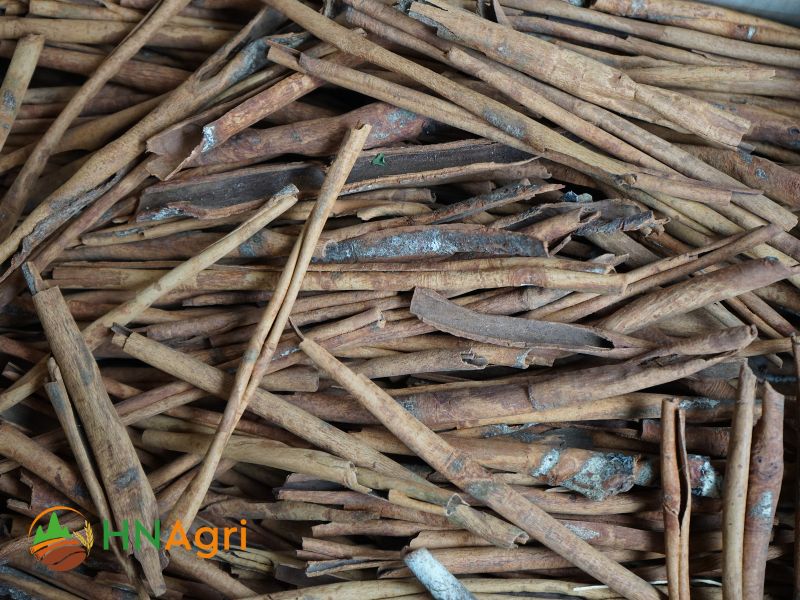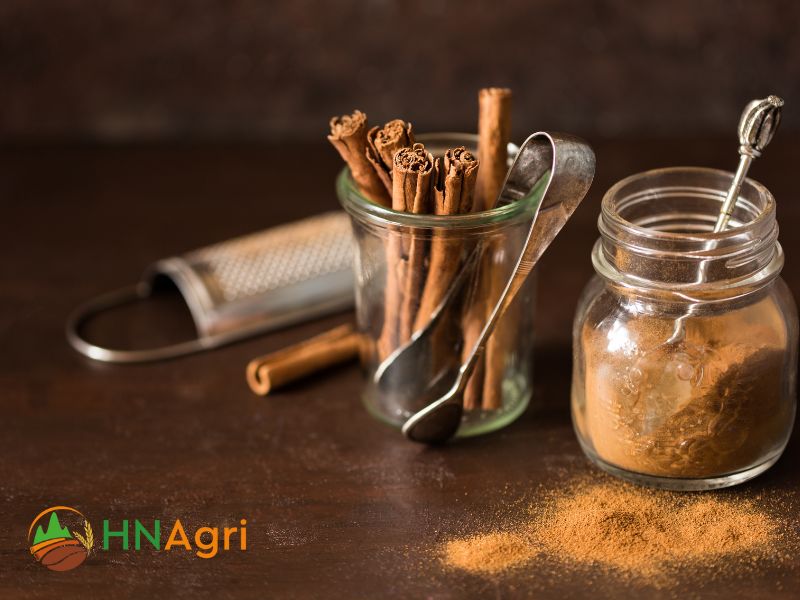In this comprehensive blog post, we focus on the intriguing comparison between Cassia vs Ceylon cinnamon. Join us as we explore their unique characteristics, uncover their contrasting flavor profiles, and shed light on the health benefits associated with each variety.
1. Frequently asked questions about Cassia vs Ceylon cinnamon
Here are some of the most frequently asked questions that capture the interest of customers about Cassia and Ceylon cinnamon.
- What is the main difference between Cassia vs Ceylon cinnamon?
- Can I easily differentiate between Cassia vs Ceylon cinnamon visually?
- Which Cassia or Ceylon cinnamon is more commonly available in stores?
- What are the possible side effects of Cassia vs ceylon cinnamon?

Frequently asked questions about Cassia vs Ceylon cinnamon
2. Answers for questions relating to Cassia vs Ceylon cinnamon
Let’s see the answer about cassia and ceylon cinnamon for you below.
2.1. What is the main difference between Cassia vs Ceylon cinnamon?
The main difference between Cassia and Ceylon cinnamon lies in their flavor profiles, coumarin content, and origin.
- Flavor: Cassia cinnamon has a bolder, and spicier flavor compared to the milder and sweeter taste of Ceylon cinnamon. The strong flavor of Cassia cinnamon is often associated with traditional cinnamon flavor in many dishes.
- Content of Coumarin: Cassia cinnamon has higher concentrations of coumarin, a naturally occurring chemical that, in high dosages, can be toxic to the liver. Contrarily, Ceylon has a substantially lower coumarin level, making it a safer option for people who routinely take cinnamon. That’s why ceylon cinnamon has become a rare species of cinnamon and the top wholesale ceylon cinnamon on the market
- Origin: Cassia cinnamon is primarily sourced from the Cinnamomum cassia tree, which is native to China, Vietnam, and Indonesia. Ceylon cinnamon, also known as true cinnamon, is predominantly grown in Sri Lanka. This distinction in origin contributes to the variation in flavor and aroma between the two types of cinnamon.
It’s important to note that both Cassia and Ceylon cinnamon are popular and widely used, but the choice between them often depends on personal preference, specific recipe requirements, and consideration of potential health implications.
2.2. Can I easily differentiate between Cassia vs Ceylon cinnamon visually?
Visually differentiating between Cassia and Ceylon cinnamon can be challenging, especially when they are in powdered form. However, if you have access to whole cinnamon sticks, there are a few visual cues that can help distinguish between the two:
- Bark Appearance: Cassia cinnamon sticks typically have a thicker and rougher bark compared to the thinner and more delicate bark of Ceylon cinnamon sticks. The bark of Cassia cinnamon can be quite rigid and has a darker reddish-brown color, while Ceylon cinnamon bark is lighter in color and has a more papery texture.
- Layered Structure: When you break a piece of Cassia cinnamon, you’ll notice a layered or coarser texture in the inner layers of the bark. In contrast, Ceylon cinnamon has a smoother and more compact structure without distinct layers.
- Curling: Ceylon cinnamon sticks tend to curl in a characteristic spiral shape, while Cassia cinnamon sticks are straighter and less likely to exhibit the same level of curling.
It’s important to remember that visual cues alone may not be entirely reliable for differentiation, especially in powdered or ground form. If you have concerns about accurately identifying the type of cinnamon, it’s advisable to rely on reputable suppliers or consult packaging labels to ensure you’re getting the desired variety.

2.3. Which Cassia or Ceylon cinnamon is more commonly available in stores?
Cassia cinnamon is more commonly available in most grocery stores and supermarkets compared to Ceylon cinnamon. This is primarily because Cassia cinnamon is more widely produced and has a stronger, bolder flavor that is often associated with the traditional cinnamon taste. Due to its popularity and affordability, it is the variety that is commonly stocked in stores and used in various culinary applications.
On the other hand, Ceylon cinnamon, also known as true cinnamon, is often considered a specialty or gourmet item. It is less commonly found in mainstream stores but may be available in specialty food markets, health food stores, or online retailers that cater to a more discerning customer base. If you specifically prefer Ceylon cinnamon, you may need to seek out specialized sources to obtain it.
2.4. What are the possible side effects of Cassia vs ceylon cinnamon?
While cinnamon is generally safe when consumed in moderation, both Cassia and Ceylon cinnamon can have certain side effects, primarily due to the presence of compounds like coumarin. Here are the possible side effects associated with each type:
- Cassia Cinnamon: The aromatic cassia cinnamon contains higher levels of coumarin compared to Ceylon cinnamon. Consuming large amounts of coumarin over an extended period may potentially cause liver damage or other health issues.
- Ceylon cinnamon: Ceylon cinnamon, when consumed in significant amounts, may interact with certain medications, including anticoagulants (blood thinners) or medications for diabetes. It’s important to consult with a healthcare professional if you are taking such medications and plan to consume cinnamon regularly.
Pregnant women, breastfeeding mothers, and individuals with specific health conditions should consult with a healthcare professional before incorporating large amounts of cinnamon into their diet, regardless of the type.
Remember, moderation is key when consuming cinnamon, and it’s advisable to consume it as part of a varied and balanced diet. If you have any concerns or pre-existing health conditions, it’s best to consult with a healthcare professional for personalized advice.